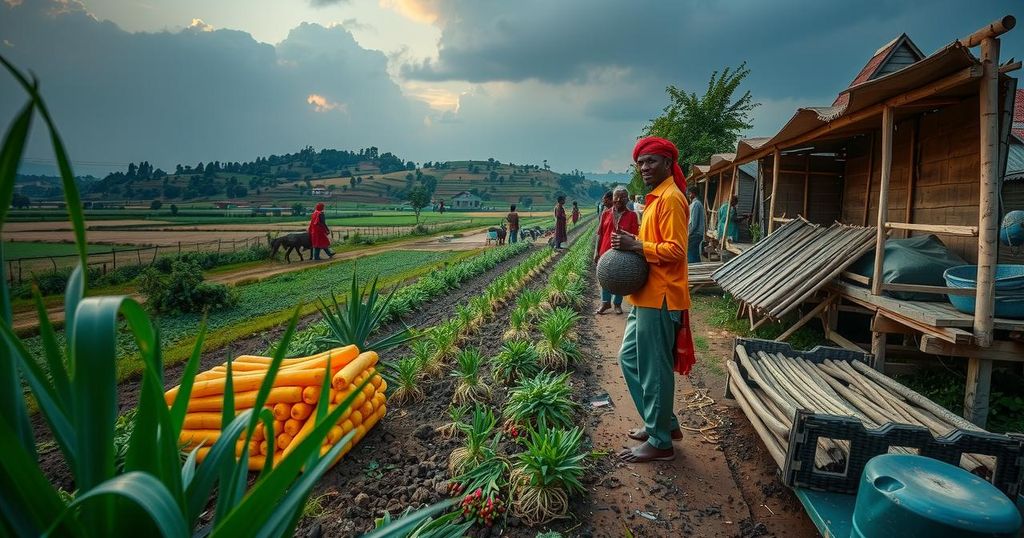An Overview of Benin’s Economy: Challenges and Opportunities
Benin’s economy relies on foreign aid, particularly from France, and has transitioned from socialist principles to privatization since the 1990s. Agriculture employs 70 percent of the workforce, supplemented by fishing and industry. The deep-water port at Cotonou is vital for trade. Despite challenges such as corruption and infrastructural deficits, there is potential for growth through resource development and improved trade links.
The economy of Benin has historically relied on external support, predominantly from France and various international organizations. Post-independence, these contributions have somewhat alleviated the severe economic hardships and low standard of living faced by most residents. Following a military coup in 1972, efforts were made to revamp the economy under socialist ideologies. However, despite nationalization and diversifying economic partnerships, systemic corruption continued to hamper growth.
By the mid-1980s, initiatives aimed at liberalizing the economy proved ineffective. The early 1990s saw a significant shift as privatization commenced, marking a departure from earlier Marxist principles. Agricultural prosperity has been vital to Benin, with an estimated 70 percent of the population engaged in farming, producing staple and cash crops, including cotton and palm oil, alongside developing the fishing industry.
Benin is endowed with valuable mineral resources, including iron ore and limestone, and has tapping potential in offshore oil reserves. Manufacturing capabilities include palm oil processing, textiles, and cement production, with electricity predominantly generated through thermal plants and hydroelectric installations. In recent years, the banking sector has undergone privatization, contributing to an increase in foreign aid and investment, which are essential for developmental projects.
Benin’s trade is heavily based on agricultural exports, and the deep-water port at Cotonou serves as a strategic trade conduit, enhancing regional commerce. The infrastructure comprises a limited road network, rail connections, and navigable rivers, facilitating trade and transportation. While Benin imports diverse products from various countries, informal trade with Nigeria impacts its economic dynamics significantly.
Since gaining independence, Benin has found its economic stability heavily reliant on foreign aid, especially from France and international organizations. The shift in political atmosphere following a coup in 1972 launched an era of socialist economy restructuring, further complicating the economic landscape with persistent corruption. Efforts towards liberalization and privatization in the late 1980s and early 1990s signal a turning point. Agriculture remains the bedrock of Benin’s economy, employing a substantial portion of the population, while fishing and industry contribute to further economic diversity. The existence of oil and mineral resources hints at potential economic advancement, contingent upon effective management and investment in infrastructure.
In summary, Benin’s economy is characterized by its dependency on foreign support, significant agricultural output, and ongoing efforts towards economic diversification and privatization. The persistent challenges of corruption and infrastructure limitations hinder its progress. However, with existing resources and potential trade enhancements through strategic ports, there remains optimism for growth. Future economic policies should focus on stabilizing and diversifying revenue sources while improving living standards for the population.
Original Source: www.britannica.com




Post Comment